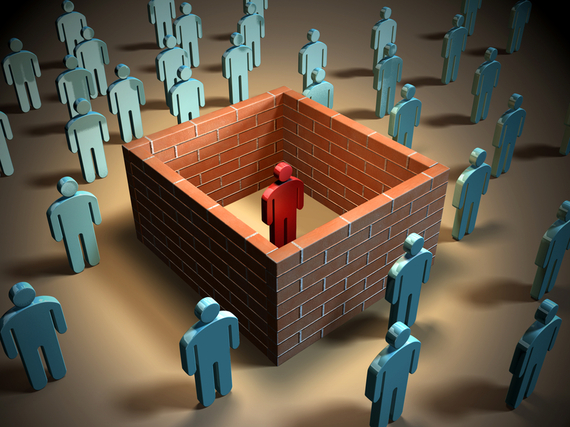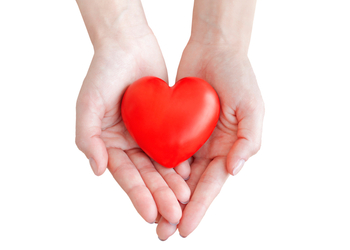It is Mental Illness Awareness Week October 5 through 11 making it the perfect time to bring up stigma. Unfortunately there exists a huge gap in the public perception of mental illness and the reality of who we are as human beings. If there wasn't we wouldn't need to have this conversation. To be immune to it I would have to move to the desert and live under a rock.
We were asked to speak at the 2014 National Convention for the NNDC (National Network of Depression Centers) for our new book, Two Bipolar Chicks Guide to Survival: Tips for Living with Bipolar Disorder. The sad part is not that the organizer asked us to speak on stigma, rather that we expected it. Stigma and mental illness are like peanut butter and jelly, if only as sweet. It is every third tweet on my feed, a word I have become so jaded to that I sink into it like a giant, comfy bean bag.
Why is this a problem this stigma, Wendy? Why all the fuss?
Here's why. Stigma can be an underlying cause why our teens commit suicide. Yes, stigma. It hurts our teens and college students who are vulnerable and impressionable. The opinions of their peers -- and society -- deeply affect their psyche. So yes, we need to talk about it and this is but one, certainly urgent reason why.
Stigma's icy wedge, the one it creates within our families, is hands down the one I hear about the most. It makes sense: Stigma hurts most from the ones we love. It is like a painful ache to the bone. With a physical illness you get loads of support. Can we help you with your groceries? Do you need me to pick up your medications? What can I do for you? This is not the knee-jerk reaction we receive when we are manic or depressed even with a fantastic family.
This includes strangers. I had surgery last year and while at the grocery story, people smiled, made way for my electric cart and grabbed items from the stop shelf. It was a refreshing change to be among the accepted. If I brought my Sharpie I might have been able to get a signature or two. But can you imagine the looks I would get if I wore a tshirt with "bipolar disorder" on it?
Let's be honest here, a cast gets doodled on, eagerly, wheelchairs get ramps and doors held, politely, but mental illness? God forbid! All that gets us is distance from loved ones and ignorant comments on the news and from the public. Have you read the comment boards following any current events mental illness related article lately? The unfiltered thoughts of American minds are scary. That ignorance is scarier than mental illness if you ask me.
This gap between education and ignorance, perception and reality, represents how far we have to go in this country with destigmatization of the mentally ill. Whether it is spoken or a thought, they both qualify as stigma.
So how do we bridge this gap?
What is the solution to opening our minds?
How do we get there?

Educate:
Education is our number one resource, our most powerful catalyst. It converts stigma to understanding; teaches acceptance not hate; creates the loving society we want. Don't we all deserve that?
Listen:
Listen. Open your minds and ears to your loved ones, to anyone who confides in you. It will help the other person and, perhaps, slowly unlock untruths and myths you may have.
Ask:
The way journalists find the truth is to ask good questions. Probing ones. I am not asking you to be professional, just ask me, us, anything. I would not mind a stranger asking me about my illness, in fact, I spoke last week and answered questions. Heck my memoir covers it all! (I hope my neighbors don't know my last name yet!) Ask questions = reduce stigma.
Help:
We need you sometimes, especially when we cannot advocate for ourselves. When someone you know is in crisis, or needing treatment for depression, your assistance can be of tremendous value. Your perspective may shift -- or potentially chip away -- as you see our invisible illness. This may help reduce your stigma towards us.
Have a little patience:
Though I can get incensed, want to shake the trees and yell out, I have to remind myself patience is key. I, we, cannot be complacent in the mental health equality movement; but Rome wasn't built in a day, either.
Think:
Think how you would like to be treated. Would you like for people to assume anything about you? Make jokes at your expense? Make you feel badly about yourself? The truth is, no, you wouldn't. Do unto others and think about your words and actions first. Progress happens when we walk in each others' moccasins. I try to do this in my own life, especially when frustrated.
Love:
Love is the universal solvent to tolerance, I say. No one's disability or lack thereof makes us in any way superior than the other. It is quite elemental, really. Just love and you will be loved back.
When I get down about progress I have a mental picture of me standing back, arms folded, head looking down on the Grand Canyon. I imagine how long it has taken the river to erode the rock and liken it to change and the progress we have made.
Then the optimist returns. I'm alive, on fire, fueled by energy from our younger generation. I am reminded they don't have patience and for that I am grateful. They tell me change is not only coming, it is imminent and inevitable and hurling faster towards us than I believe.

